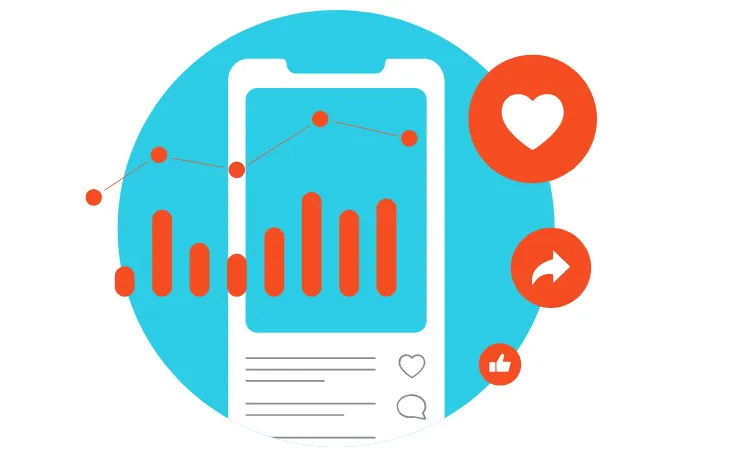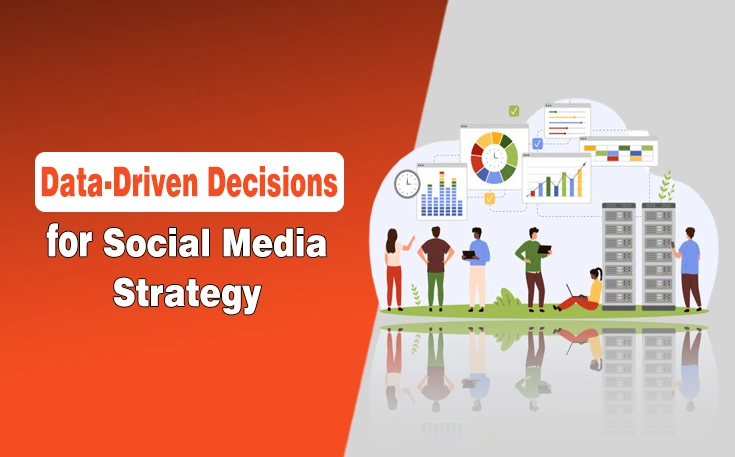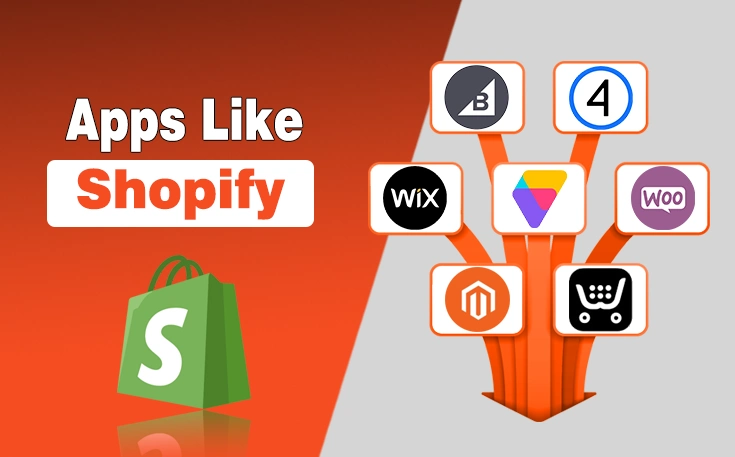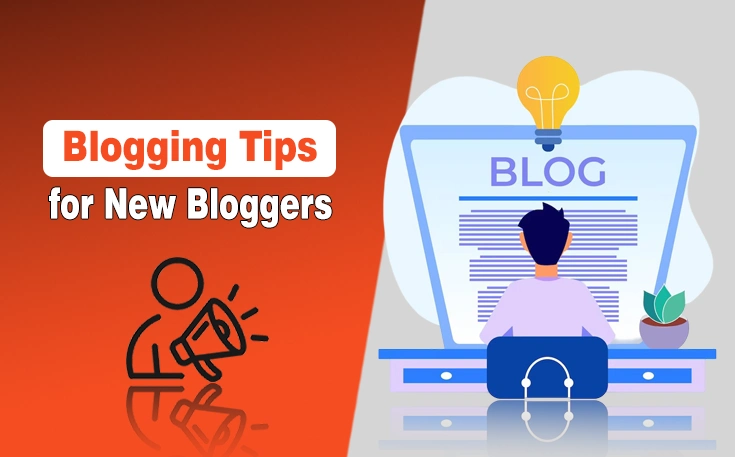Social media is a powerful tool for businesses to engage with their audience, fuel growth, and sell their products. Success, though, takes more than publishing content; it requires strategic decision-making using data.
By monitoring social media metrics, a company can get essential information about its audience’s preferences and behaviors, enabling it to develop more targeted and effective campaigns. With data-driven decision-making, a business can take all the right actions to fulfill its objectives and maximize returns on investment. That’s why it is a vital part of every modern social media strategy.
In this blog post, I will explain how data-driven decisions impact a social media strategy for better growth.
Let’s start!
Data-Driven Decisions – An Overview
Data-driven decision-making involves evaluating relevant information to formulate strategies. When it comes to social media, it involves applying metrics and audience data to refine content and engagement strategies.
The method holds significant advantages for marketers. Using data, they can figure out what works and what doesn’t, so they can optimize campaigns to achieve the biggest impact. It also helps businesses know their target audience, and post engaging content for their followers to consider.
For instance, understanding how website designers works can help coordinate social media strategies in relation to organizational digital marketing objectives, hence developing more integrated and efficient campaigns.

Key Metrics in Social Media
Data-driven social media strategies call for monitoring the right metrics. The key ones include:
- Engagement rate: Measures how users are engaged with content and measures likes, comments and shares on content posted.
- Reach and impressions: Enables you to know how many people have viewed your posts and how often your post appears on their screen.
- Click-through rate (CTR): Shows overall efficiency of a post in terms of traffic generation toward a website or an intended landing page.
All these insights guide strategic adjustments, such as revising the content style or posting schedule if the engagement rate is low. These form the basis for strategic adaptations. For instance, if the engagement rates are poor, then you may likely change content writing style or the timing of the posts. Similarly, evaluating CTR can show whether the Facebook marketing strategy is effective in driving traffic or needs adjustments.
Tools and Technologies
There are several tools and technologies that can be employed to enhance the data analytical capabilities of social media. Google Analytics, Hootsuite, and Sprout Social allow tracking of all the main parameters of social network activities. These tools facilitate measurement of various parameters, assessment of various factors, and preparation of reports that may be used to alter strategies.
Technologies such as artificial intelligence and machine learning have also worked to improve data analysis. These technologies can analyze data, give insights regarding such users and possible behavior and even make recommendations for improvement. For example, AI-powered tools can analyze the performance of a blog vs Facebook posts, helping marketers determine which medium generates better engagement or leads.
Emerging Trends
As social media continues to evolve, new technologies and trends are shaping the way businesses develop their digital strategies. Be it advances in artificial intelligence or the increased relevance of video content, staying ahead of these trends helps sustain their market position.
Predictive Analytics
Utilizing past data to forecast future outcomes is advancing in complexity. Digital marketers use predictive modeling to anticipate patterns in user behavior. This includes peak engagement periods and preferred content types. Such an approach also quickly enables the delivery of more targeted and timely content.
Integration of Augmented Reality
AR provides highly engaging interactive experiences on social media. By utilizing data analytics, brands can quickly optimize their campaigns. This helps identify which experiences resonate most with audiences and also the conditions under which they are most effective.
Improved Personalization
With advancements in data collection, social media platforms will provide increasingly tailored experiences for users. Marketers will also attain the ability to develop highly customized content that resonates with individual preferences.
AI-Powered Content Generation
Artificial intelligence is currently helping brands create informative content. As it continues to evolve, its role in crafting dynamic and responsive posts and snippets will continue to expand. Future media will not just rely on historical engagement data. Instead, it will incorporate real-time feedback loops that adjust according to ongoing interactions.
Voice and Visual Search Optimization
As these technologies gain popularity, optimizing for speech and images becomes essential. Evidence-based findings not only enable marketers to understand how individuals utilize modern solutions but also how they should adjust their strategies.
Ethical Data Use and Privacy
Future strategies must balance effective media utilization with moral considerations. This not only helps prevent legal penalties but also helps build credibility.
Final Thoughts
Utilizing data to inform social media decisions enables companies to develop more efficient and focused strategies. Monitoring key metrics and using proper tools will lead marketers to accurately understand their audience, improve engagement, and achieve marketing goals.
As technology continues to evolve, data will increasingly play a significant role in social media marketing. Businesses that adopt data-driven methodologies will succeed in the constantly evolving digital environment.





